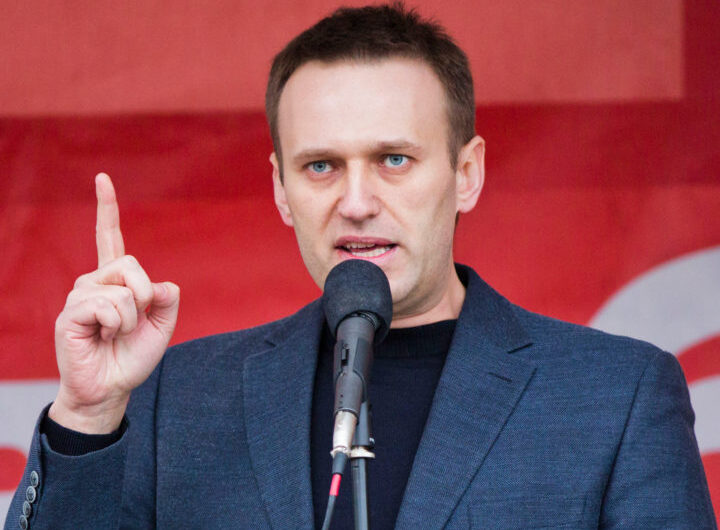Words by Ewan Vellinga
Thousands of people across Russia defied a police crackdown on 24 January and again on 31 January by protesting against the imprisonment of opposition leader Alexei Navalny.
Footage shows protestors chanting “Putin is a thief” and “freedom to Navalny” at one rally in central Moscow, which Reuters estimates was attended by 40,000 people.
Although Russian authorities have denied that the numbers were so high, a significant number of people protested across at least 100 cities, from St Petersburg to Vladivostok, in what appears to have been the largest protests in Russia in a decade.
Russian authorities had threatened a tough crackdown, warning people not to attend due to the risk of Covid-19 and potential prosecution for attending an unauthorised event; this threat soon turned into reality, with over 5000 people having been detained.
Footage shows riot police beating protestors, with some rallies turning into pitched battles as protestors and police turned violent. However, arrests were also made in cases where the protests were more peaceful, and there are even reports of journalists being detained.
Russian authorities had already arrested a number of Mr Navalny’s closest aides in the days leading up to the protests, with President Vladimir Putin seemingly intent on silencing growing criticism.
The protests are in response to Mr Navalny’s recent arrest on 17 January, the day on which he returned to Russia from Germany, where he had been treated after a near-fatal nerve agent attack in August which he claims was authorised by the Kremlin.
He was arrested at the airport and quickly convicted of violating parole conditions, his sentence amounting to 30 days in prison.
Mr Navalny claims the arrest was politically motivated, a claim he also made after being barred from running for political office in the 2018 presidential race because of an embezzlement conviction.
Mr Navalny has also spent years campaigning against corruption, having first risen to prominence for his anti-corruption stance in 2008. He has frequently referred to the United Russia Party headed by President Putin as a “party of crooks and thieves.”
Despite his recent arrest, his Anti-Corruption Foundation (FBK) released a video on YouTube two days after his return showing a luxury resort by the Black Sea, which they claim was built by a businessman for President Putin as the “world’s largest bribe.”
Russian authorities have dismissed claims of what was termed “Putin’s palace”, stating that the video amounts to a “pseudo-investigation.”
However, Mr Navalny has a significant following on social media, and by 24 January the video had already amassed 75 million views. Not only did it cause significant online debate, but many of his followers also seem to have responded to the plea at the end of the video for people to take to the streets.
Social media has taken a prominent role in the protests, not only through YouTube but also other platforms such as Tik Tok, with users spreading videos documenting the events. This led Russian authorities to threaten fines if Tik Tok did not take down content it felt was “encouraging minors to act illegally.”
The BBC also noted that there were reports of disruption to mobile phones and internet coverage during the protests. Although a common tactic to stop protestors communicating, it was unclear whether the two were connected.
Despite Mr Navalny’s online popularity and growing prominence as President Putin’s biggest critic, he has faced some criticism himself from within opposition circles. The BBC notes that some have voiced concern over his Russian nationalism. In an interview in 2014, he stated that, despite the Russian annexation of Crimea being a violation of international law, the reality was that Crimea had been taken, and that “Crimea is ours.”
However, Mr Navalny’s popularity continues to grow, with Reuters noting that protests calling for his release also occurred outside of Russia in cities in Germany, Bulgaria and France.
The police crackdown has also seen criticism from international politicians, with U.K. Foreign Secretary Dominic Raab condemning the “use of violence against peaceful protestors and journalists”, and calling on Russia to respect its international commitments to human rights, and release citizens detained during peaceful protests.
The U.S. and the E.U. have also voiced criticism, with U.S. Embassy spokesperson Rebecca Ross suggesting the arrest of peaceful protestors and journalists was a “concerted campaign to suppress free speech” and “peaceful assembly”, and E.U. Foreign Policy Chief Josep Borrell deploring the “widespread detentions” and “disproportionate use of violence.”
Picture Credit: Evgeny Feldman / Novaya Gazeta





